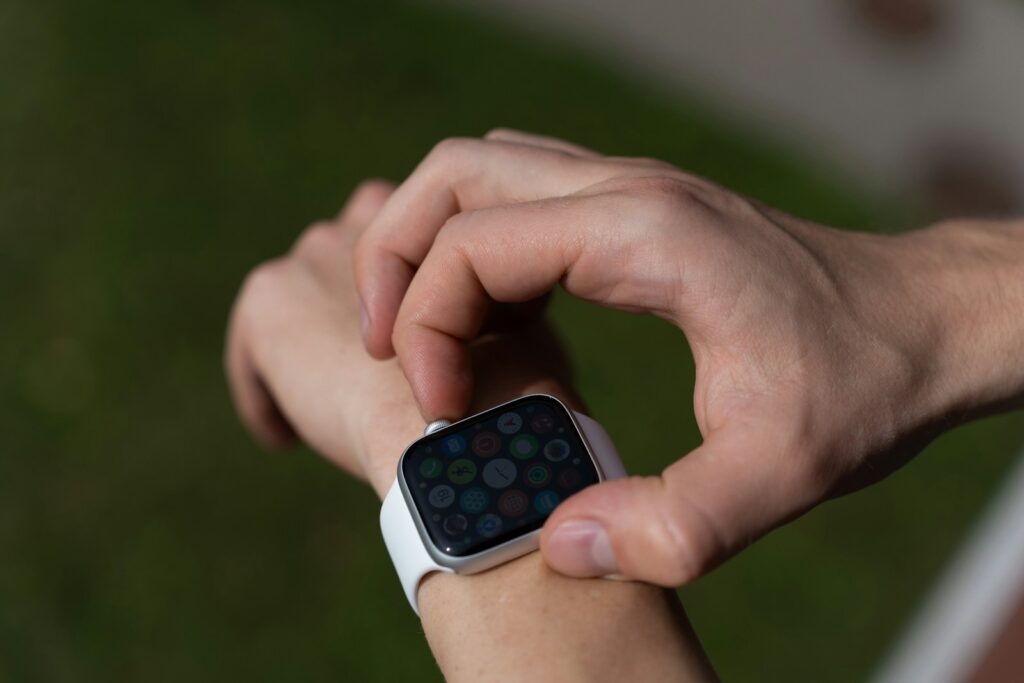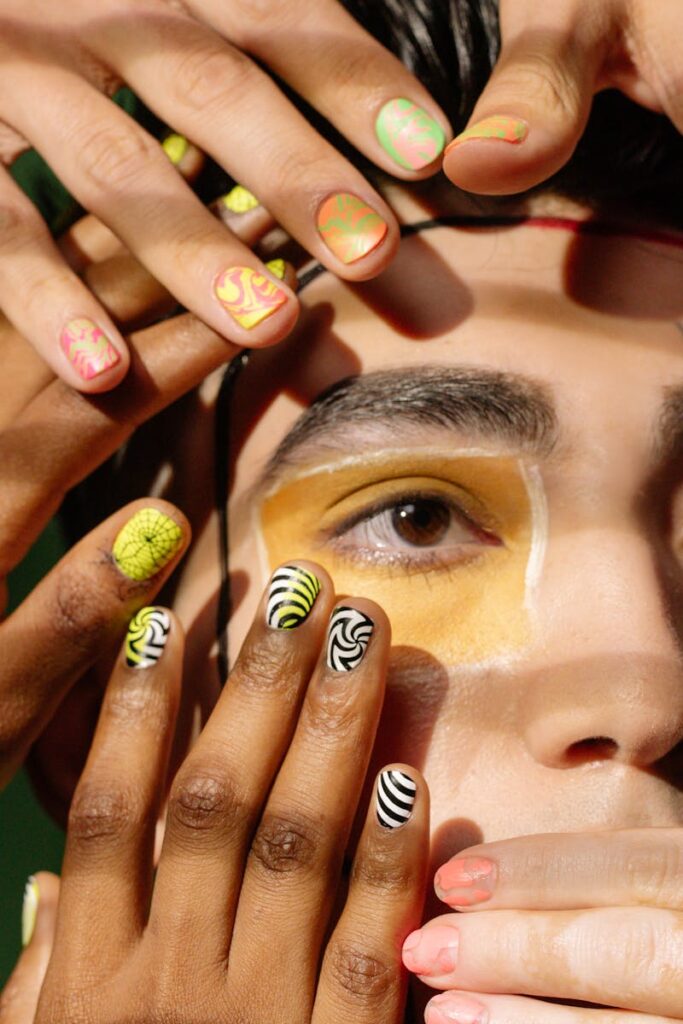
Ever caught yourself wondering why you do what you do, or what makes others tick? It’s a pretty universal human curiosity, isn’t it? We’re all endlessly fascinated by the inner workings of personality, constantly seeking to understand ourselves and those around us. While some of those fancy, official personality tests like Myers-Briggs can offer valuable insights, let’s be real—you probably don’t need a deep dive into your favorite ice cream flavor to get a real read on someone. Forget those overly simplistic social media quizzes!
What truly gives us the inside scoop on personality isn’t some expensive assessment or a superficial survey. It’s behavior, plain and simple. Dr. Christine B.L. Adams, a psychiatrist and researcher who’s dedicated over 40 years to studying personality development, puts it perfectly: “If you want to really understand yourself or others, you need to look at behaviors to understand their underlying emotions and motivations.” Every single day, you’re dropping subtle clues about who you are, and these tiny, almost unnoticeable habits pile up to paint a remarkably accurate picture of your personality and what drives you. It’s like your personal neon sign, broadcasting messages you might not even realize you’re sending!
So, are you ready to dive into the fascinating world of behavioral psychology, BuzzFeed style? Get ready to discover how those small, everyday actions you take—often without a second thought—are actually spilling all the tea about your true self. From the moment you greet someone to how you sip your coffee, these seemingly insignificant quirks are surprisingly revealing. Let’s peel back the layers and explore the first seven incredible ways your habits are speaking volumes about your unique personality.

1. **Your Handshake**: Believe it or not, your handshake is a powerful little signal, capable of communicating volumes about you in just a fleeting moment. Patrick Wanis, PhD, a human behavior expert and author, emphasizes this, noting that a firm, brief handshake with a single up-and-down motion is a clear indicator of a confident personality. Conversely, a limp handshake can immediately convey insecurity, fear, or a sense of being shut down. It’s an instant read for anyone you meet!
But the revelations don’t stop there. Wanis also points out more subtle signals that can be sent through this common gesture. For instance, if you opt for the two-hand arm shake, it might signal aggressiveness or even an attempt to assert dominance. Similarly, shaking hands with your palm facing down can show that you are dominant, controlling, and potentially aggressive. And here’s a crucial tip from Wanis: “Never wipe your hand just after you have shaken hands with someone, because that communicates that you find the person dirty or that you are someone who is overly worried about germs.” Talk about sending the wrong message!
Scientific research actually backs up these observations. A study published in the *Journal of Personality and Social Psychology* trained judges to assess eight key characteristics of a handshake: the completeness of grip, temperature, dryness, strength, duration, vigor, texture, and eye contact. The findings were quite compelling, showing that participants who exhibited firmer handshakes consistently described themselves as more emotionally expressive, extroverted, and positive individuals. In contrast, those with looser grips were more likely to identify as shy and neurotic. What’s even more fascinating is that the judges’ first impressions aligned perfectly with these self-assessments, as they consistently perceived participants with firmer handshakes as more confident and less socially anxious. And for the ladies out there, firmly shaking hands was linked to being more intellectual, educated, liberal, and open to new experiences. So next time, give it a firm grip!

2. **The Way You Walk and Your Posture**: Your walk isn’t just about getting from point A to point B; it’s a dynamic display of your personality, constantly giving away clues about your inner world. Carol Kinsey Goman, PhD, a body-language expert and creator of “Body Language for Leaders,” highlights how your stride can be a huge personality reveal. For instance, someone who walks with a measured, even stride and keeps their head held high exudes a confident personality and tends to be socially adept and open to others. This is why so many public figures, from celebrities to politicians, consciously adopt this powerful “power walk”—it just screams confidence!
On the flip side, your posture can betray deeper feelings. Walking with a “caved-in” posture – where your shoulders are slumped, your head is down, and your body curls inward – often indicates feelings of vulnerability. This particular stance can point to a very self-conscious personality type or someone who is frequently lost in their own thoughts, perhaps even a bit withdrawn. These subconscious behavioral cues you’re sharing aren’t just minor details; they can actually carry serious implications for how others perceive you and even how they might interact with you.
The impact of your walking style isn’t just about social perception; it can have profound real-world consequences. A striking study published in the *Journal of Personality and Individual Differences* in 2021 revealed a darker side to these clues: students with psychopathic tendencies were able to accurately judge vulnerability and identify potential victims simply by observing the way people walk. This chilling finding underscores the importance of being mindful of your gait. Knowing this, it might be a smart move to consciously adopt a more assertive and confident style of walking, even if it feels a little unnatural at first. Beyond just vulnerability, the speed and manner of your walk – whether you’re darting through crowds or taking a leisurely stroll – can also hint at your driven nature, focus, or even your level of impatience, reflecting how you approach life’s challenges. Similarly, your general posture, whether you slouch or sit up straight, can instantly convey levels of confidence or nervousness to those observing you.

3. **Your Email Etiquette and Inbox**: In our increasingly digital world, your email habits have become a fascinating window into your real-life character. Dr. Adams, a seasoned psychiatrist, points out a clear connection between our online email persona and who we are offline. It’s not just about the words you choose; *how* you write your emails, *what* you write, and even *when* you send them can be surprisingly accurate predictors of your personality, with studies consistently finding strong associations between specific keywords and major personality traits.
For instance, have you ever noticed someone who sprinkles words like “I,” “me,” and “mine” frequently throughout their emails? That tendency is generally associated with narcissistic personality traits. On the other hand, extroverts tend to adopt a much more casual tone in their emails, often chatting about lighthearted, fun topics like music and parties, mirroring their outgoing nature in real life. It’s a subtle but telling detail! Beyond word choice, the meticulousness of your writing also speaks volumes. An absence of typos, for example, is often a strong indicator of someone’s conscientiousness, a touch of perfectionism, and even a potential for obsessive tendencies. Conversely, persistent poor grammar might unfortunately suggest lower levels of IQ or academic intelligence.
And the insights don’t stop at just the content or grammar! The length of your emails can also be quite revealing. While long emails certainly reflect energy and a thorough approach to communication, they can also hint at a certain degree of neediness or a desire for comprehensive interaction. Beyond individual emails, the overall state of your inbox is a major tell. Is it a perfectly tidy, organized digital sanctuary with a coveted ‘zero unread’ count? That suggests you’re someone who values control, efficiency, and likely a strong sense of order in your life. However, if your inbox is perpetually overflowing with unread messages, it might signal that you’re feeling a bit overwhelmed, perhaps struggling with information management, or, on a lighter note, you might just be incredibly popular and in high demand! The way you manage your digital space mirrors how you manage tasks and information in your everyday existence.

4. **Nervous Tics**: Do you find yourself biting your nails, picking at your skin, or perhaps compulsively tugging at your hair when you’re feeling a certain way? Scientists refer to these repetitive actions as “body-focused repetitive behaviors,” and they’re far more than just bad habits; they are, in fact, physical manifestations that often betray your inward emotional state. These seemingly minor actions can reveal a great deal about what’s going on in your mind, serving as external clues to internal turmoil or even attempts at self-soothing.
Research indicates there’s a distinct and often challenging vicious cycle between emotions and these tic behaviors. A 2022 study published in *Brain Sciences* clearly highlights this connection, noting that the more individuals experience heightened feelings of anxiety, tension, stress, and frustration, the more pronounced and exacerbated their tics tend to become. It’s a self-perpetuating loop where emotional discomfort directly fuels the physical manifestation, and the physical action, in turn, can sometimes create a temporary sense of relief, inadvertently reinforcing the behavior.
The specific type of tic you engage in can also offer fascinating insights into your underlying personality. For example, individuals who compulsively tug on their hair or bite their nails often share a common trait: they tend to be perfectionists. Their repetitive actions aren’t just random; they often stem from a deep-seated attempt to soothe feelings of boredom, irritation, and dissatisfaction. For these individuals, engaging in the repetitive behavior feels inherently better than doing nothing at all, providing a comforting, almost meditative outlet for their internal unrest. This repetitive action becomes a source of comfort, a coping mechanism that helps them manage the uncomfortable emotions bubbling beneath the surface.

5. **Punctuality**: Whether you’re the person who arrives early, precisely on time, or consistently late, your punctuality—or lack thereof—sends a powerful, undeniable message about your personality, your adherence to etiquette, and what truly motivates you. Dr. Adams points out that individuals who consistently value punctuality are often characterized as diligent rule-followers and considerate people-pleasers. They tend to respect others’ time and demonstrate a reliable and thoughtful approach to their commitments, showcasing a strong sense of personal responsibility.
On the other end of the spectrum, those who are perpetually late might exhibit a more self-focused disposition, where their own needs or perceived flexibility take precedence. However, it’s also worth noting, as Goman adds, that chronic lateness can sometimes be a trait associated with ADHD. Therefore, while it offers a clue, this particular trait should always be considered as part of a broader, more comprehensive picture of someone’s personality, rather than an isolated judgment. It’s not always about disrespect; sometimes, it’s about how their brain is wired!
Scientific inquiry further illuminates the connection between punctuality and character traits. A 2006 study published in the *Journal of Research in Personality* treated punctuality as an accurate measure of positive character traits. In this experiment, researchers asked participants to complete a personality assessment at home before coming to a laboratory for a group experiment. By meticulously analyzing each participant’s time of arrival, they uncovered compelling associations: those who were consistently punctual were also found to be more conscientious and agreeable in their overall personality. Interestingly, arriving early was connected to higher levels of neuroticism, suggesting a potential anxiety about being late. Meanwhile, individuals who were chronically late tended to be more laid-back, perhaps to a fault. So, the next time you set your watch, consider what that small act is truly saying about you.
6. **Your Eating Habits**: It’s a common saying, “you are what you eat,” but according to body-language expert Carol Kinsey Goman, it’s equally true that “you are how you eat.” The simple act of consuming food—what you choose to eat, your favorite foods, when you eat, how much you eat, and even your dining etiquette—all provide intriguing clues to your personality. From the speed at which you finish your plate to your adventurousness with new cuisines, every bite can be a tell!
Consider the pace of your meal. Slow eaters, for instance, are often revealed to be conscientious individuals who appreciate being in control of their surroundings and situations. They savor their food, much like they savor life, and tend to approach things with a thoughtful, deliberate pace. Conversely, fast eaters typically exhibit traits of ambition and impatience, often eager to move on to the next task or experience. Business Insider also supports this, noting that slow eaters generally like to be in control and know how to appreciate life, while fast eaters tend to be ambitious. This isn’t just about hunger; it’s about your approach to life’s pleasures and demands.
Your palate also tells a story. An adventurous eater—someone always keen to try new, exotic, or unusual foods—often reveals themselves as a thrill-seeker and a risk-taker in other aspects of their life, constantly seeking novel experiences. On the other hand, picky eaters are more likely to exhibit signs of anxiety and neuroticism, suggesting a need for predictability and comfort. And if you’re the type of person who meticulously separates different foods on your plate, ensuring they don’t touch, it strongly suggests that you are a very cautious and detail-oriented individual in your everyday life, preferring order and precision. Furthermore, maintaining a strict diet plan and avoiding certain foods is a powerful indicator of a person’s self-control, showcasing a disciplined and determined personality. So, the next time you sit down for a meal, remember that your plate might just be serving up more than dinner—it’s a dish of self-discovery!

7. **The Clothes You Wear**: Fashion isn’t just about trends or personal taste; it’s a powerful non-verbal language that speaks volumes about who you are, often revealing more than you realize. The style, the perceived cost, and even the very color of your outfit are incredibly revealing, according to a compelling 2020 study published in *Psychology of Aesthetics, Creativity, and the Arts*. This research found some intriguing connections between clothing choices and underlying personality traits.
The study’s findings suggest that people who gravitate towards brightly colored or flashy clothes, coupled with expensive or designer accessories, were significantly more likely to struggle with insecurity, possess low self-esteem, and exhibit less authenticity in their interactions. Why might this be the case? The researchers propose that an intense desire to seek attention and an overt attempt to fit into a perceived “highbrow” or elite culture are often tell-tale signs of narcissism. It’s almost as if the clothes become a shield or a statement, rather than a genuine expression of self.
However, it’s crucial to approach this with a bit of caution, as Goman thoughtfully reminds us. This isn’t a universally applicable rule. Many individuals express their unique personalities vividly and authentically through their clothing choices, opting for garments and accessories that genuinely reflect their inner world rather than merely trying to attract external attention. These individuals, who truly use fashion as a canvas for self-expression, are often revealed to be highly creative and imaginative types. It’s also worth considering if you dress to impress others or primarily for your own comfort, or if you like to stand out versus blending in. Each choice subtly reflects your self-esteem and how you perceive yourself in the grand tapestry of social interaction. The clothes you wear are more than just fabric; they’re a silent autobiography.
Alright, so we’ve already peeled back some fascinating layers of personality, haven’t we? From the subtle power of your handshake to the silent stories told by your stride, it’s clear that your everyday actions are practically shouting about who you are. But trust us, the revelations don’t stop there! If you thought you had a handle on your behavioral quirks, get ready for a deeper dive.
Now, we’re venturing into even more intriguing territory, exploring seven more habits that truly speak volumes about your inner world. These are the personal choices you make, often without a second thought, that can actually lay bare your core personality traits and motivations. Get ready to discover how your shopping trips, social media interactions, and even your go-to beverage can spill all the tea about the incredible person you are. It’s time for some serious self-discovery, BuzzFeed style!

8. **Your Shopping Habits**: Ever wondered what your retail therapy sessions are really saying about you? Turns out, how you hit the mall or browse online can be incredibly revealing! According to a 2022 study published in the *Journal of Retailing and Consumer Services*, people who absolutely love to shop and tend to, well, shop a little too much, are often classified with quite a lively mix of personality traits. These individuals are more likely to be hedonistic, extroverted, impulsive, and wonderfully open to new experiences. They might even have a touch of neuroticism, just to keep things interesting!
On the flip side, if your shopping expeditions are strictly business—meaning you only buy what you truly need—you’re likely to have a more agreeable and conscientious personality. These are the folks who value practicality and purpose. But here’s where it gets even deeper: Patrick Wanis, PhD, a human behavior expert, points out that your spending habits can also be a major clue about your personality type within relationships. It’s not just about what you buy, but how you manage your money, especially with a partner.
Folks who hide money, consistently overspend, or rack up debt might actually be signaling untrustworthiness and instability in their romantic relationships. It’s a serious red flag, isn’t it? In fact, Wanis goes as far as to call financial infidelity a form of cheating. So, the next time you’re debating that impulse buy, remember that your wallet might just be revealing more than your current balance—it’s giving a sneak peek into your core values and how you approach commitment!

9. **How Often You Take Selfies**: In the age of Instagram and TikTok, the humble selfie has become a daily ritual for many, but what’s it actually saying about your personality? Researchers, curious about the link between social media behavior and personality, conducted a fascinating study where college students completed surveys on their selfie-posting habits and personality assessments. The results, published in *The Journal of Open Psychology* in 2022, were pretty eye-opening.
It turns out that the more frequently someone posted selfies, the less emotionally stable they tended to be, and surprisingly, the lower their self-esteem. Now, before you start deleting your entire camera roll, there’s a silver lining! These frequent selfie-takers were also more likely to be extroverted and place a high value on their relationships with others. It seems there’s a complex interplay between seeking connection and perhaps seeking validation.
The researchers also noted that these effects were even more pronounced in younger individuals, suggesting that the digital landscape impacts different age groups in unique ways. So, while your selfie game might be strong, it’s worth considering the subtle messages your frequent photo ops are sending about your emotional state and your drive to connect with the world around you. Are you genuinely sharing your joy, or subtly seeking approval?

10. **Your Handwriting**: You might think handwriting is a dying art in our digital age, but did you know it’s a science with roots going back to Aristotle? It’s called graphology, and it’s all about analyzing your unique scrawl to uncover hidden personality traits. In fact, your handwriting is such a powerful window into who you are that a 2018 study found a computer program could predict a person’s personality type with about 80% accuracy just by analyzing their penmanship! Talk about mind-blowing!
Handwriting experts claim they can detect over 5,000 personality traits from your loops, swirls, and pressure points. It’s a whole secret language hiding in plain sight! For instance, if you’re someone who writes with large letters, it often suggests you’re a people-oriented individual who also enjoys being the center of attention. On the flip side, smaller handwriting can reveal an introverted nature, coupled with an impressive ability to concentrate acutely. It’s all in the details!
The slant of your writing also spills some tea. A slight right slant means you’re probably friendly and impulsive, ready to jump into new experiences. If your letters lean to the left, it points to a more reserved and individualistic personality, someone who marches to their own beat. No slant at all? That usually suggests you’re logical and pragmatic, approaching life with a cool, reasoned mind. And finally, the pressure you apply: heavy pressure indicates strong emotions and a quick reaction time, while a light touch implies an easygoing nature and adaptability, literally the ability to move from place to place with ease. Who knew your scribbles were so profound?
11. **The Way You Treat Service Staff**: Want to get a true read on someone’s character? Forget the fancy dinner conversations and just observe how they interact with service staff! Numerous studies have been conducted on this very topic, and the findings are pretty fascinating, revealing a lot about one’s underlying personality. It’s a classic tale.
For example, if you’re the type of person who is rude or impatient with waiters, cashiers, or customer service representatives, people will often perceive you as someone who is arrogant and entitled. It’s a quick and clear signal that you might place yourself above others. On the other hand, if you’re the kind of person who is patient, understanding, and respectful with service staff, you’ll immediately be seen as kind and compassionate. It really shows your true colors, doesn’t it?
Of course, it goes without saying that no one, regardless of their job, should ever be treated poorly. Everyone deserves respect. But it’s incredibly interesting to see how our interactions with those in service roles can serve as such a powerful mirror, reflecting deeply held values and revealing a great deal about our genuine nature. It’s often in these everyday, casual exchanges that our true personality shines through, for better or worse.
So, the next time you find yourself wondering what makes you, well, *you*, don’t just ponder the big questions. Take a moment to observe the delightful dance of your daily habits. You might just uncover a hidden gem of self-awareness. And hey, maybe you’ll even learn a little something new about the amazing people around you. Because in the grand theater of life, every tiny action is a spotlight, illuminating the wonderful, complex character that you truly are. Keep being you, in all your wonderfully quirky glory!





